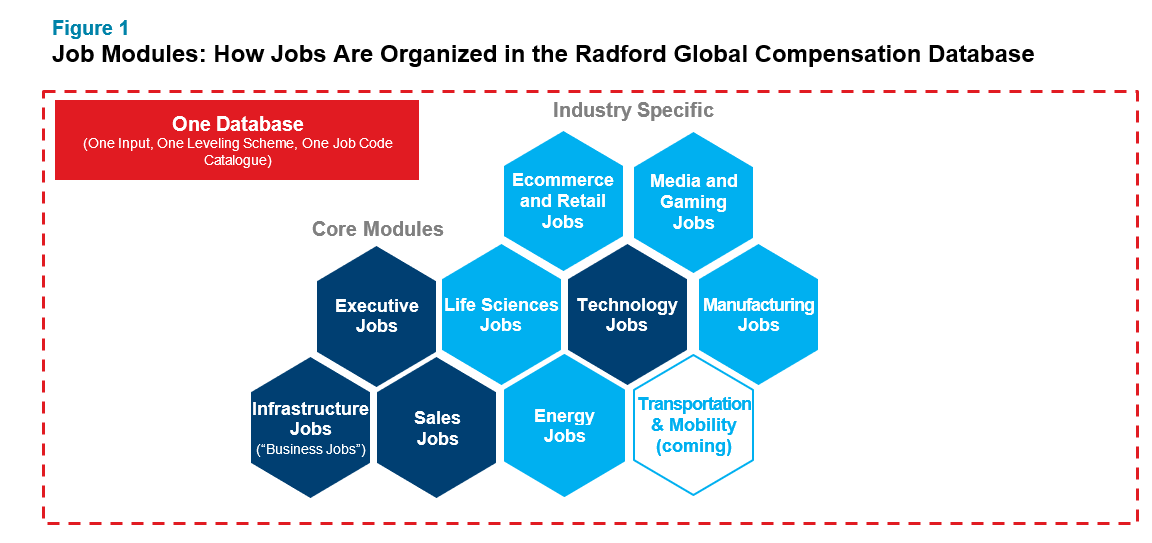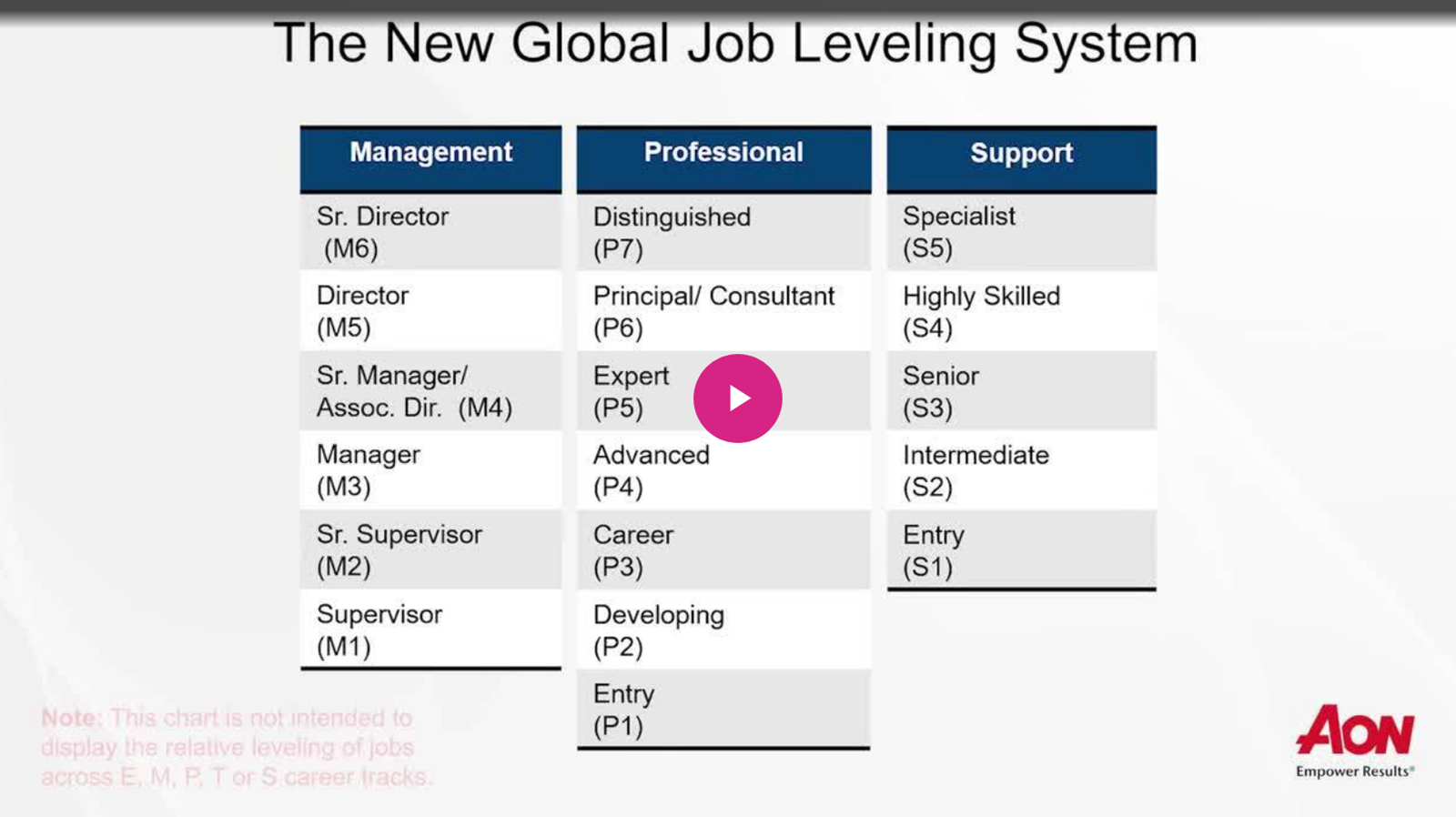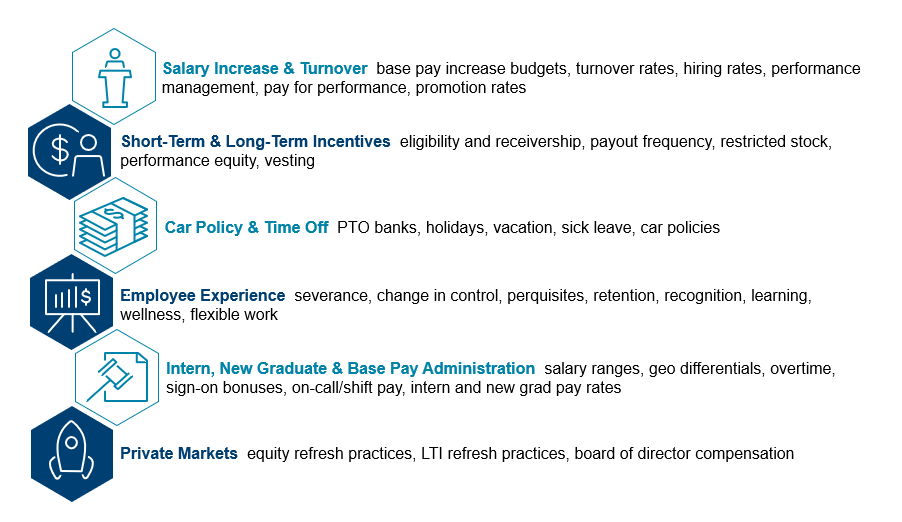The COVID-19 pandemic has accelerated the pace at which client needs are changing, driving the evolution of our solutions to deliver an integrated and comprehensive source of data that enables firms to embrace new ways of work, while rethinking their approach to rewards.
 A new year brings with it a new set of challenges and opportunities. The COVID-19 pandemic has illuminated many longstanding issues, bringing human capital to the forefront. As organizations redefine their operating model, there is an increasing reliance on technology. When jobs are restructured, people must align to new processes, systems and tools.
A new year brings with it a new set of challenges and opportunities. The COVID-19 pandemic has illuminated many longstanding issues, bringing human capital to the forefront. As organizations redefine their operating model, there is an increasing reliance on technology. When jobs are restructured, people must align to new processes, systems and tools.
To help organizations benefit from these opportunities, we have transformed our data offerings. Starting with the 2021 survey cycle, we are launching the Radford Global Compensation Database, delivered on the Radford Network®. The data transformation means our individual rewards surveys are now combined into a single platform. This allows organizations to efficiently access rewards benchmarks across all jobs, career levels and geographies. The database contains more than 13 million incumbents, across over 3,500 companies and 85 countries.
In this article, we share more details about the Radford Global Compensation Database and how our updated data solutions can help you navigate change, turning challenges into opportunities.
Meeting the Need to Benchmark Jobs Across Industries
Traditionally, organizations use highly segmented compensation surveys as the primary source to benchmark their core jobs. They often supplement their analyses with a secondary source that may be related to their industry or with a general industry survey. While understanding industry-specific practices should be a primary focus, we know that many roles (e.g., software developers) that once resided in clear industry silos are now prevalent in all organizations. In order to get a more complete understanding for the value of these jobs, it’s important for you to look at broader sources.
We have developed the Radford Global Compensation Database in response to this need. By organizing jobs by module, we are able to collect data across all industries for each job. Each module is comprised of a distinct collection of job functions, which describe its core responsibilities (examples include engineering, sales, finance and research & development). Some modules (the dark blue in Figure 1) are comprised of jobs commonly found at all companies, while other modules (the light blue in Figure 1) include industry-specific jobs. Using a structure like this supports a broad, cross-sector view of the market, with the ability to drill down into industries — a particularly valuable benefit for executive and senior management roles, as well as infrastructure and technology job modules. It also provides flexibility for organizations to access the specific data they need.

Career ladders to assess differences in development and scope
Many companies are investing a great deal in creating a job architecture that clearly defines career paths and opportunities for an employee’s growth and development. Job architecture also helps facilitate various talent management activities, including compensation management. Numerous firms utilize our survey level guidelines to define their own structures, and we have retained this resource in the new database (our global job leveling for non-executive levels is not changing). We continue to have the Management (M), Professional (P) and Support (S) jobs with key differentiators at each career level. The structure recognizes the differences that underpin the dual management and professional individual contributor career tracks. Based on client input, we are, however, making changes to the executive structure, moving from three levels to six (including incorporating key executive scope parameters such as organization level, financial scope, reporting layer and geographic responsibility) and developing a new scientific technical ladder for the life sciences population.
Watch this video to learn more about the Radford Global Compensation Database job leveling.

How Our Platform Can Help Your Organization
Putting technology, digital and analytics at the core
There is no doubt that companies today are vying for talent across sectors, with particularly keen competition for technology and digital skills. Creating a compelling client experience is a key differentiator for retailers and e-commerce companies, and organizations across all industries are seeking to build a meaningful employee experience. At the heart of these transformations is technology and analytics expertise. The Radford Network was founded with the world’s leading technology companies and remains the preferred source of technology compensation benchmark data today. This has enabled us to quickly scale our database to include leading organizations from other sectors, providing users with an understanding of pay differences for these roles across sector, geography and career framework.
Developing a more expansive view of executive compensation
Organizations are increasingly recognizing the benefit of having an executive team that spans multiple industries. Having a diverse, cross-sector perspective is key to most effectively honing and executing your strategy. To attract and maintain the right team of executives, it is becoming more important to understand variances in executive pay across sectors (e.g., pay mix, the use of deferred cash, perquisites). Additionally, as operating models become more dynamic, executives’ responsibilities are evolving quickly, which could potentially result in not being easily pegged to a conventional role. In these cases, you would want to incorporate compensation practices from a variety of roles. Adding more granularity to our executive leveling structure and having all our executive data on a single platform provides complete access to this.
Promoting employee mobility with geographic differentials
As remote work becomes more prevalent, many organizations are providing their employees with the flexibility to work in locations that are not in proximity to their offices. While this drives the employee experience, it also raises many questions around if and how pay should be altered based on geography. Policies and practices aimed to address these questions should be framed in a manner that best supports the business strategy and operating model. However, in order to craft the best solution, you need the proper data to assess and implement different ideas. The volume of data available in the Radford Global Compensation Database will allow you to understand geographic pay differences across jobs, sectors and career levels, and ultimately formulate the most strategic policy for your firm.
Gathering insights to compete for top talent in the private market
Private companies are change agents and thrive between traditional industries. Because so many private companies are based on technology innovations, they have turned to the Radford Global Compensation Database as their primary data source. To best support the private markets, our offering allows users to filter by company ownership and sector-specific business metrics. The private markets offering has doubled in size over the last twelve months and we anticipate strong continued growth.
Private companies hire top talent and create pay programs that promote growth and speed to market. It is important for established organizations to stay abreast of this market segment — today’s seed companies will likely be tomorrow’s technology leaders. The transformation of our data platform showcases all company ownership types, including public, private (venture, private equity, other), government or state-owned and not for profit.
Looking Ahead
If this year has taught us anything, it’s that you never truly know what the future holds. But, that doesn’t mean you can’t prepare for the unknown. With the right data, your business will be armed with the insights necessary to make informed decisions in any circumstance. We are excited for the changes we are making to our data and look forward to partnering with you to ensure that you have access to the data and tools necessary for making the right decisions for your business.
In addition to the Radford Compensation Database, we offer a series of market studies to help organizations understand pay practices, trends in annual rewards budgets and plan design parameters. Like our compensation database, study results can be analyzed by industry and geography, providing clear guidance and insights to help support your decision-making process. These studies are available to all Radford Compensation Database participants.

To learn more about the cutting-edge compensation data and insights you need for 2021 and beyond, please visit our website here or write to rewards-solutions@aon.com. A dedicated data solutions consultant will guide you through the annual survey input and data review process. This consultant will also serve as your point of contact for reporting questions and access to training resources.
Related Articles